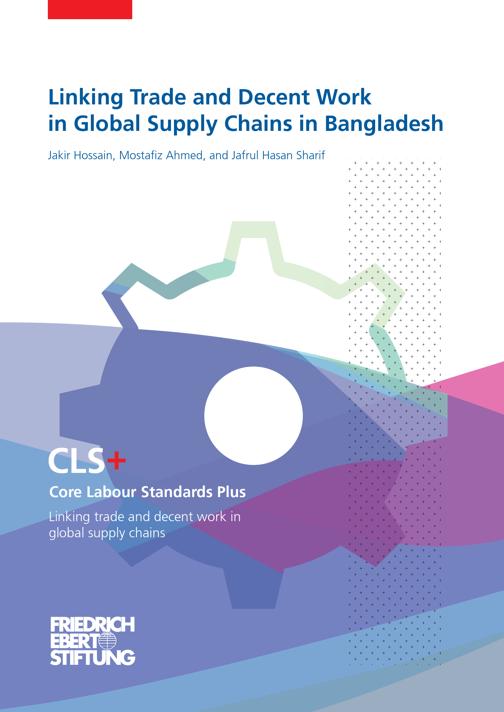Publikationen der StiftungLinking trade and decent work in global supply chains in Bangladesh Titel
Titelaufnahme
- TitelLinking trade and decent work in global supply chains in Bangladesh
- Verfasser
- Körperschaft
- Erschienen
- Umfang1 Online-Ressource (IX, 42 Seiten) : Diagramme
- AnmerkungLiteraturverzeichnis Seite 38-40
- SpracheEnglisch
- SerieCLS+ Core labour standards plus
- DokumenttypDruckschrift
- Schlagwörter
- Geografika
- URN
- Das Dokument ist frei verfügbar
- Nachweis
- Archiv
Bangladesh�s integration into the global supply chains is mainly linked to its liberalised trade. Free trade regimes such as the EU GSP have made significant contributions to the economic upgrading of the country, but have failed to upgrade its social development. Although freedom of association, freedom from forced and child labour and employment free of discrimination, are defined as the Core Labour standards (CLS), these ILO core conventions are rarely complied by all actors along the global supply chain. Furthermore, the aftermath of the Rana Plaza events tragedy revealed an urgent need for the inclusion of rights such as decent working hours, living wages and health and safety, which are regarded as the elements of CLS+. The study titled �Linking Trade and Decent Work in Global Supply Chains in Bangladesh� highlights power imbalances in the industrial and labour relations along the global supply chain and offers recommendations for all actors along the chain to alter the conditions prevailing at the bottom of the value chain. The study is a part of the regional project CLS+, which was launched by Friedrich-Ebert-Stiftung in Asia in 2016.
